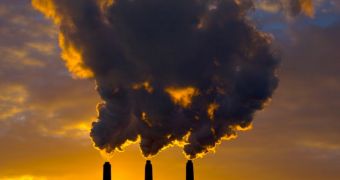A report shared with the public by the World Health Organization (WHO, for short) this past May 7 shows that, for the time being, air quality in most cities across the world is fairly poor. This means that the very air people breathe constitutes a threat to their wellbeing.
On its website, the Organization details that, when compiling this latest report on air quality across the world, it focused on data concerning concentrations of airborne harmful chemical compounds in some 1,600 cities spanning across 91 different countries.
According to the specialists who carried out this investigation, it was thus discovered that, of the approximately 1,600 cities that were taken into consideration, air quality fell within standards established by the World Health Organization in just 12% of them.
This means that people living in 88% of the urban areas the WHO report focused on currently breathe air that is tainted with various pollutants and that can cause them to develop various respiratory diseases, maybe even other health problems.
The specialists further detail that, of the total population of these 1,600 cities, some 50% is constantly exposed to air pollution that is estimated to be about 2.5 times higher than what the Organization considers to be the safe limit.
It goes without saying that these people are, therefore, even more vulnerable to the effects of poor air quality and have greater chances to develop various medical conditions as a result of their breathing in one too many harmful compounds.
“Too many urban centers today are so enveloped in dirty air that their skylines are invisible. Not surprisingly, this air is dangerous to breathe,” says Dr. Flavia Bustreo, WHO assistant director-general for Family, Children and Women's Health.
It is believed that so many cities are struggling with poor air quality these days due to the fact that, despite recent investments in clean power sources, considerable amounts of fossil fuels such as coal are still being used in energy production.
Besides, quite a lot of people own and drive private transport motor vehicles, and some urban areas still have a long way to go before they can call themselves energy efficient. Lastly, the use of biomass for cooking and heating is also an issue, WHO says.
The good news is that, given the right incentives and policies, it is possible to reduce levels of air pollution in various areas and ensure that the people who inhabit them do not have their health severely affected by airborne pollutants.
“We can win the fight against air pollution and reduce the number of people suffering from respiratory and heart disease, as well as lung cancer. Effective policies and strategies are well understood, but they need to be implemented at sufficient scale,” explains Dr. Maria Neira, WHO director for Public Health, Environmental and Social Determinants of Health.

 14 DAY TRIAL //
14 DAY TRIAL //